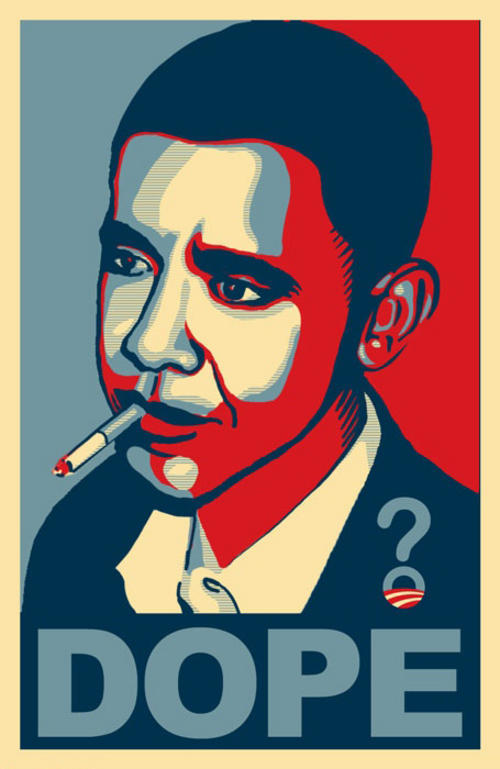No criminal charges against the philandering former Chair, but investigation reveals salacious details about alleged drug fueled days as leader of Multnomah County’s government!
In our last look at the Jeff Cogen affair and the ensuing investigation by Oregon’s Department of Justice, we left off in July by explaining why Cogen had little to fear from the DOJ investigation, which actually provided Cogen with temporary cover and an excuse not to immediately resign. We recounted the results from previous DOJ investigations into high profile officials, ranging from Portland Mayor Sam Adams to DPSST Director John Minnis. In each instance, the officials who were the target of the investigation were cleared of any criminal wrongdoing by the Oregon Attorney General’s office.
 In that regard, the outcome of Cogen’s case was decided before it began – and Cogen knew it. But like every investigation, there are always some surprises along the way. For example, the allegation by Sonia Manhas that Cogen led a double life – the public persona of political rising star and the private Cogen, who Manhas described as a “Deadhead” follower of the Grateful Dead lifestyle. The other more serious revelation involved Cogen’s alleged drug use, both on and off the job. While DOJ found insufficient evidence to prosecute Jeff Cogen for drug use, another Cogen family member’s problems may have just begun.
In that regard, the outcome of Cogen’s case was decided before it began – and Cogen knew it. But like every investigation, there are always some surprises along the way. For example, the allegation by Sonia Manhas that Cogen led a double life – the public persona of political rising star and the private Cogen, who Manhas described as a “Deadhead” follower of the Grateful Dead lifestyle. The other more serious revelation involved Cogen’s alleged drug use, both on and off the job. While DOJ found insufficient evidence to prosecute Jeff Cogen for drug use, another Cogen family member’s problems may have just begun.
What a long, strange trip it’s been…
Lawyered Up
When DOJ launched its investigation in July, one of the first actions Cogen took was to hire Janet Lee Hoffman to represent him. Hoffman is one of the most experienced, successful and respected criminal defense attorneys in Oregon. As the DOJ report indicates, Hoffman lived up to her reputation for encouraging her clients not to give statements to police by refusing to allow Cogen to be interviewed unless the DOJ first gave her a preview of what would be asked of her client. The two sides never reached an accord on that point, and Jeff Cogen himself never gave a statement to DOJ, despite his previous public statements that he welcomed the investigation and looked forward to a full vetting of all the facts.
Cogen would not be the first Multnomah County chair facing a DOJ investigation who refused to be interviewed. When former chair Diane Linn was investigated in 2007 for tampering with public records, she also refused to be interviewed. Like Cogen, she was later cleared of any criminal wrongdoing by DOJ.
Both Cogen and Linn had every right to refuse to cooperate with investigators. Because these DOJ investigations are criminal in nature, Linn and Cogen exercised their constitutional right not to be compelled by the state to give a statement. With Hoffman in charge of protecting Cogen, the state would have to make its case against Cogen without any help or cooperation from the potential criminal defendant himself. Hoffman did her job, and did it well. And taking a final page from the Sam Adams political playbook, Hoffman declared her client vindicated by an investigation in which he refused to participate: “We’re delighted that the DOJ released its report this afternoon finding no evidence of official misconduct on his part,” Hoffman said. “This is a position he’s taken from the beginning.”
But Hoffman was not the only attorney to claim Jeff Cogen as a client. For example, Multnomah County Attorney Jenny Madkour, whose client technically is Multnomah County and not any individual employee or elected official, nonetheless told DOJ that “her clients [are] representatives from the Chair’s office, representatives from the Board of Commissioners, representatives from Human Resources, and the Chief Operating Officer. She elaborated that her clients are those county employees who are in decision making positions as well as elected positions.” There also was the revelation that Jeff Cogen was a client of his attorney brother Mitchell Cogen. And that brief snippet in the 100-page DOJ report may prove to be the most troublesome for the Cogen brothers.
Better Call Saul!
 Perhaps the most sensational aspect of the Jeff Cogen investigation was the leaked reports that Cogen was a regular marijuana user and allegedly used cocaine and ecstasy. In fact, these leaked reports prompted Rosenblum to quickly release the full, but redacted report, before more investigative details emerged without her stamp of approval.
Perhaps the most sensational aspect of the Jeff Cogen investigation was the leaked reports that Cogen was a regular marijuana user and allegedly used cocaine and ecstasy. In fact, these leaked reports prompted Rosenblum to quickly release the full, but redacted report, before more investigative details emerged without her stamp of approval.
According to the DOJ reports, “Several people provided information during interviews that Cogen is a recreational user of marijuana.” According to Manhas, Cogen also admitted to her of using cocaine and ecstasy, though she never personally witnessed that particular drug use. Based on that evidence alone DOJ correctly concluded that it could not successfully prosecute and convict Cogen of unlawful use of marijuana or cocaine. But at that point, the investigation was looking at the wrong Cogen.
Manhas told DOJ that Jeff Cogen gets his marijuana from his brother, Mitchell Cogen, and his cocaine from a California attorney later identified as Jeremy Friedman. When DOJ interviewed Friedman, the longtime friend of Jeff Cogen was reluctant to answer any questions related to their alleged shared drug use. In the 24-minute interview, Friedman neither admitted nor denied any knowledge of Cogen or himself using or distributing controlled substances or “engaging in any illegal activity on the past.” Friedman did make clear that he and Jeff Cogen are not business partners and Friedman never claimed to be Jeff Cogen’s attorney. The same cannot be said for Mitchell Cogen.
a California attorney later identified as Jeremy Friedman. When DOJ interviewed Friedman, the longtime friend of Jeff Cogen was reluctant to answer any questions related to their alleged shared drug use. In the 24-minute interview, Friedman neither admitted nor denied any knowledge of Cogen or himself using or distributing controlled substances or “engaging in any illegal activity on the past.” Friedman did make clear that he and Jeff Cogen are not business partners and Friedman never claimed to be Jeff Cogen’s attorney. The same cannot be said for Mitchell Cogen.
When DOJ contacted Mitchell J. Cogen, an attorney at Bullard Law, the recorded phone conversation lasted about a minute. Mitchell Cogen told the investigator, “I am one of Jeff’s attorneys, so I’m not interested in talking to you.” That abrupt opening remark caught the investigator off guard, who told Cogen that he thought Janet Hoffman was Jeff Cogen’s attorney. Mitchell Cogen replied that while Hoffman is his brother’s criminal defense attorney, he (Mitchell) was one of his brother’s lawyers and apparently invoked attorney-client privilege in refusing to speak with the investigator.
While that conversation closed a very brief chapter in the Jeff Cogen investigation, the implications of Mitchell Cogen’s claim of attorney-client relationship with his brother may prove problematic for the Oregon State Bar. Both Cogen brothers are members of the Oregon bar. Jeff Cogen was admitted in 1994, but has been on Inactive status for the past several years while serving on the Multnomah County commission.Mitchel J. Cogen has been an active member of the bar since 2000.
The issue is not the alleged personal drug use by either Cogen. Like many professions, among Oregon’s 11,000 attorneys, some have issues with alcohol and drugs. Thirty years ago the bar’s Professional Liability Fund established the Oregon Attorneys Assistance Program, where attorneys can get confidential help for substance abuse issues. Recreational marijuana use, though illegal in Oregon, is not likely grounds for bar discipline absent some other factor. And two Oregon bar members, who happen to be brothers, sharing their personal stash may not appear on the bar’s disciplinary radar either. But Mitchell Cogen told a DOJ investigator that Jeff Cogen is not just his brother, but is a client and presumably has been throughout the time frame that is the subject of the investigation. By claiming his brother is a client in this matter, Mitchel Cogen may have turned himself, and potentially Bullard Law, into an investigative target.

If Sonia Manhas’ allegations are true, that Mitchell Cogen was his brother’s drug supplier, then the bar is faced with a situation where an active Oregon attorney at a large well-known employment law firm has repeatedly and unlawfully delivered a controlled substance to a client. And that is grounds for bar discipline, ranging from public reprimand to disbarment.
Unlawful Delivery of Marijuana (ORS 475.860) can range from being a violation to a Class B felony, depending on the amount delivered, the consideration paid, and the location of the transaction. Under Oregon Rules of Professional Conduct 8.4(a) “it is professional misconduct for a lawyer to commit a criminal act that reflects adversely on the lawyer’s honesty, trustworthiness or fitness as a lawyer in other respects; or engage in conduct involving dishonesty, fraud, deceit or misrepresentation that reflects adversely on the lawyer’s fitness to practice law; or engage in conduct that is prejudicial to the administration of justice.” Serving as your client’s drug dealer would likely trip one or more of those provisions.
While Attorney General Rosenblum’s investigation has cleared Jeff Cogen of any criminal wrongdoing, her investigation has uncovered possible criminal misconduct on the part of Jeff Cogen’s brother, who is an active member of the Oregon State Bar. RPC Rule 8.3 states, “(a) A lawyer who knows that another lawyer has committed a violation of the Rules of Professional Conduct that raises a substantial question as to that lawyer’s honesty, trustworthiness or fitness as a lawyer in other respects shall inform the Oregon State Bar Client Assistance Office.” Whether the Attorney General forwards her investigation to the Oregon State Bar for further investigation is unknown at this time. But one cannot help but heed these words of caution:
Driving that train, high on cocaine,
Casey Jones is ready, watch your speed.
Trouble ahead, trouble behind,
And you know that notion just crossed my mind.
Bruce McCain is a lawyer in private practice, member of the Reynolds School Board, retired Multnomah County Sheriff’s Captain and a member of the Victoria Taft Blogforce.




